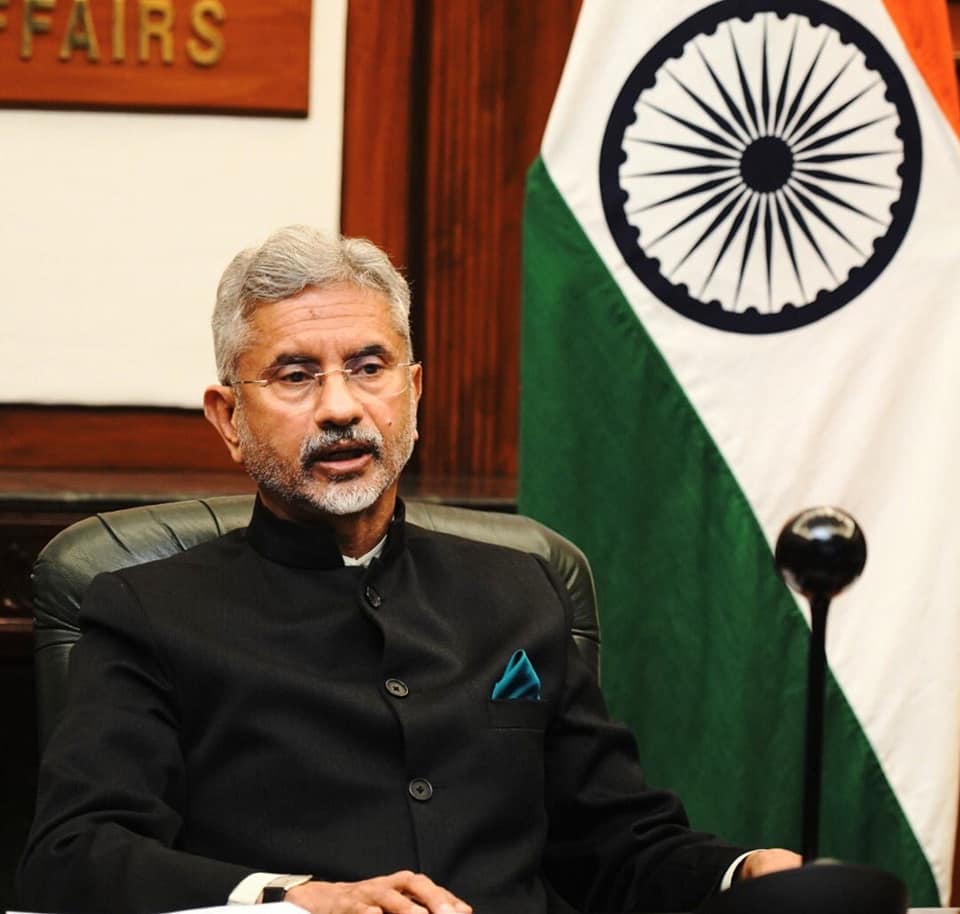![]()
Last week Sri Lankan President Gotabaya Rajapaksa had a phone conversation with Chinese President Xi Jinping during which he lavished praise for the Communist Party of China (CPC) on its 100th anniversary since its founding and the “strong leadership” of President Xi Jinping.
During the call, he further expressed interest in expanding “expand cooperation in fields like infrastructure and tourism, and smoothly advance major projects such as the Colombo Port City”.
Denial of Human Rights
The call follows the passage of the UN Human Rights Council resolution on Sri Lanka, which mandates the collection and preservation of evidence that may be used in a future war crimes tribunal. During the Human Rights Council session, China representative, Mr Chen Xu, attacked the resolution for a supposed “double standard of human rights” and for allegedly “using human rights as a pretext for interference in other's internal affairs”.
.jpg)
In advance of the Human Rights Council session, Yang Jiechi, Director of China's Central Committee's Foreign Affairs Commission had visited Sri Lanka and vowed to defend the country at “international fora including United Nations Human Rights Council”.
Similarly, in February, Sri Lanka’s Foreign Secretary, who himself stands accused of being complicit in the running of torture camps, defended China and denied any evidence of the government committing genocide against the Uighur Muslims in Xinjiang.
There is no evidence to support claims by some western politicians that "genocide" was committed against the Uygur community in China's Xinjiang, said Sri Lanka's Foreign Secretary Jayanath Colombage in a recent interview with Xinhua. #GLOBALink pic.twitter.com/o4N2LpXlHh
— China Xinhua News (@XHNews) February 19, 2021
Jiechi’s visit was hailed as “The first-ever Chinese visit in the South Asian region, since the global coronavirus epidemic” and was noted as a sign of strengthening “cooperation between Sri Lanka and China”. Following the visit, China announced a $90 million grant for Sri Lanka, with more financial assistance for Sri Lanka's straggling economy reportedly on the way.
Read more here: Blinken, Yang, Sri Lanka and the global competition for democracy
Indophobia

Notably, this call also follows souring relationships with India as Sri Lanka unilaterally withdrew from the East Colombo Port Terminal agreement, worth an estimated $700 million and which was a key outpost for New Delhi’s export economy. This withdrawal follows heavy backlash from Sinhala Buddhist nationalists who warned of an “Indian invasion”.
Relationships have been further strained by the deaths of Tamil Nadu fishermen, which India’s External Affairs Minister, S Jaishankar, described as “unacceptable”. In February, All India Anna Dravida Munnetra Kazhagam (AIADMK) leader M. Thambidurai. Thambidurai reported that 245 Tamil Nadu fishermen had been killed in Sri Lanka.
During the Human Right Council session, despite repeated calls for India to support the resolution, India abstained whilst calling on Sri Lanka to address the “aspirations of the Tamil community”. India has repeatedly called on Sri Lanka to fulfil its commitments to Tamils under the 13th amendment, but this has received harsh criticism, with Sri Lanka’s Foreign Secretary, Jayanath Colombage, telling India to “not harp on this” and warning that it would lead to secession.
Sri Lanka’s reluctance towards India was further displayed last November when Colombage questioned the need for the US-backed Quadrilateral Security Dialogue Alliance (QUAD).
“Do we really need a quad? Will Quad not give rise – not to a cold war – but at least a cool war in the Indian ocean?”
Read the original statement from China’s embassy in Sri Lanka here.
We need your support
Sri Lanka is one of the most dangerous places in the world to be a journalist. Tamil journalists are particularly at threat, with at least 41 media workers known to have been killed by the Sri Lankan state or its paramilitaries during and after the armed conflict.
Despite the risks, our team on the ground remain committed to providing detailed and accurate reporting of developments in the Tamil homeland, across the island and around the world, as well as providing expert analysis and insight from the Tamil point of view
We need your support in keeping our journalism going. Support our work today.
For more ways to donate visit https://donate.tamilguardian.com.

